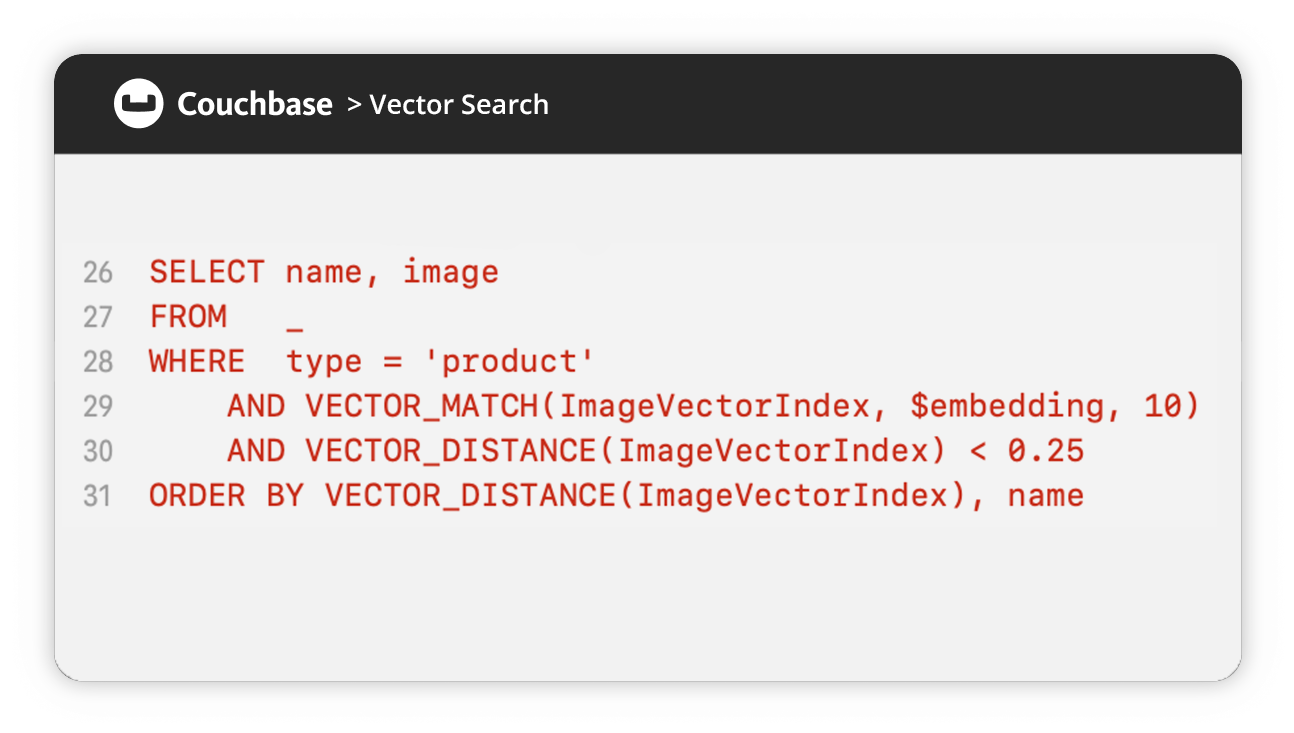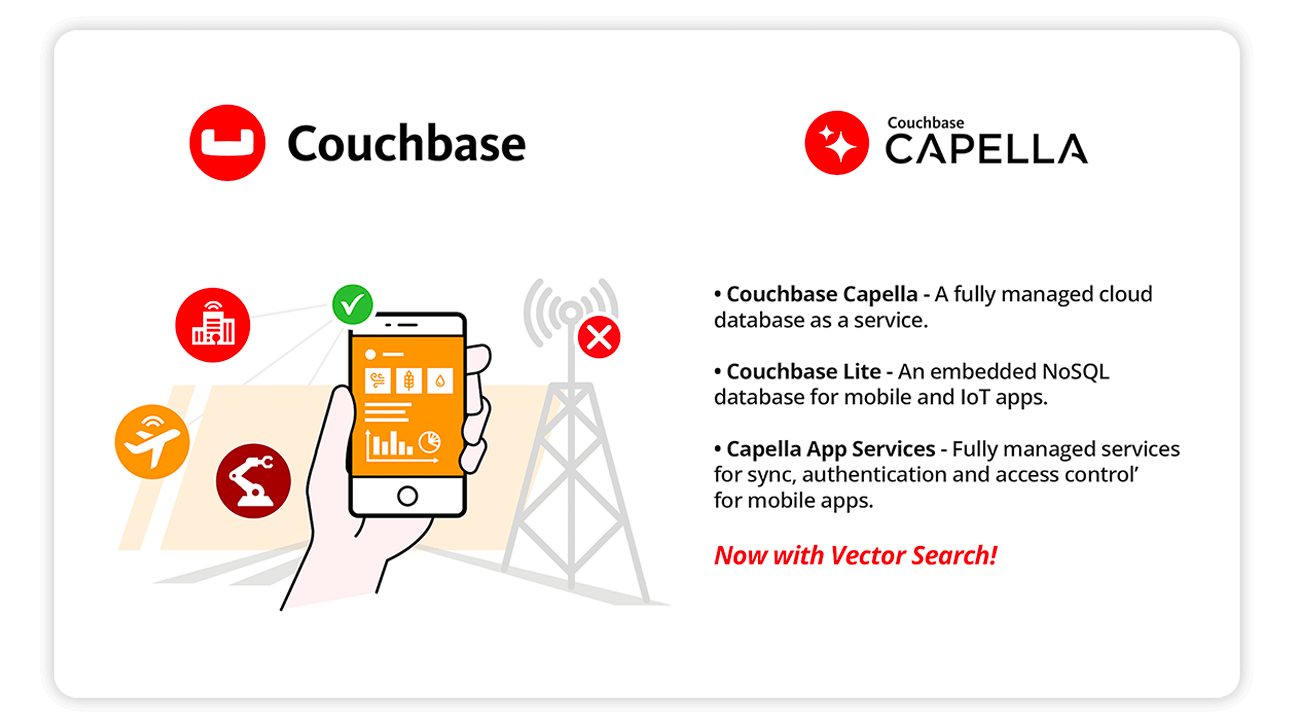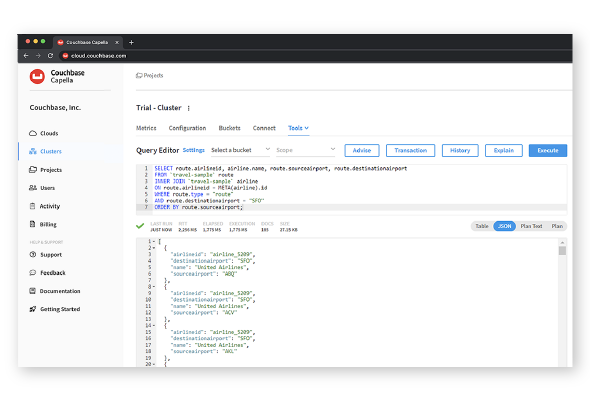- Products
-
-
Products
-
Why Couchbase?
Developers and enterprises choose Couchbase for their mission-critical applications.
See WhyVector Search
Vector search delivers nearest-neighbor results, without needing a direct match.
Learn More
-
-
- Solutions
-
-
By Industry
-
By Use Case
-
Adaptive Applications

Get AI-ready with hyper-personalized apps!
Next level customer experiences require adaptive applications
Learn more
-
-
- Developers
-
-
Popular Docs
-
By Developer Role
-
Capella Playground
-
-
- Resources
-
-
Resource Center
-
Education
-
Vector Search

What's Vector Search and why is it important?
Get a quick overview of vectors, vector search, use cases, and key features.
Watch
-
-
- Company
-
-
About
-
Partnerships
-
Our Services
-
Partners: Register a Deal
Ready to register a deal with Couchbase?
Let us know your partner details and more about the prospect you are registering.
Start hereMarriott
Marriott chose Couchbase over MongoDB and Cassandra for their reliable personalized customer experience.
Learn more
-
-
- Pricing
- Try Free
- Sign In
- search
